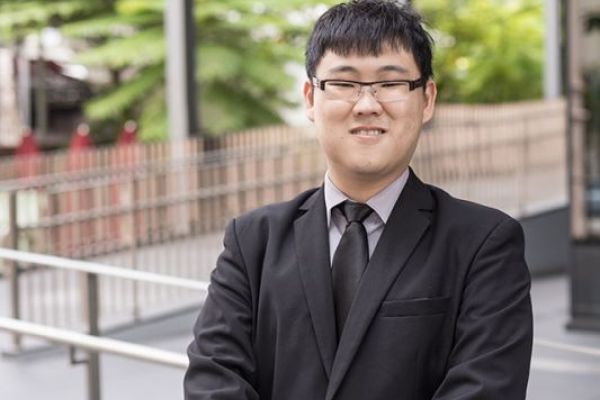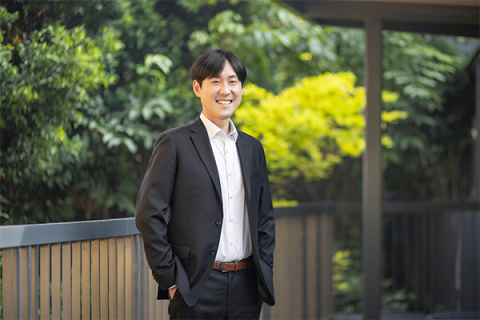
By Vince Chong
SMU Office of Research Governance & Administration - Increasing tax competition, cryptocurrency taxation, environmental taxation, and myriad global tax reforms. These are among the many concerns facing the international tax system right now, as regulatory environments diverge and grow ever more complex.
Tackling the challenges head on is SMU Assistant Professor Vincent Ooi, who leads a prestigious new initiative launched in partnership with the Tax Academy of Singapore: one with the ambitious aim of developing world-class global tax scholarship right here in the Lion City.
“International taxation is moving at breakneck speed,” said the inaugural Head of the Singapore Tax Academy Research Initiative, or STARI.
“It is difficult enough to keep up with the developments, but truly understanding the implications of these developments on stakeholders in taxation, such as governments and taxpayers, is extremely challenging.”
Cue STARI, a partnership between the Tax Academy and SMU, that launched in August 2025 at the SMU Yung Pung How School of Law’s Centre for Commercial Law in Asia. The three-year project aims to boost ongoing discourse of global taxation issues through in-depth analyses of these developments, and their connections to wider trends surrounding international tax frameworks.
Arguably, STARI was born out of the common vision of Tax Academy CEO Dennis Lui and Professor Ooi to create an initiative that would allow Singapore to be at the forefront of international tax thought-leadership. The idea took off in 2025, not long after Mr Lui became CEO.
“With major international tax developments coming one after the other in the last few years, the Tax Academy team and I realised that there was a need for a project to help contribute carefully reasoned analyses … on the extent to which these developments affect us all,” Professor Ooi told the Office of Research Governance & Administration (ORGA).
“Singapore, in particular, as a small, open, nation is particularly vulnerable to global changes in international taxation.”
Some crucial issues affecting global taxation, he noted, include the Base Erosion and Profit Shifting (BEPS) global reform blueprint led by the Organisation for Economic Cooperation and Development, or OECD. While it comprises a key driver of worldwide tax policies, specific parts remain to be worked out, Professor Ooi said.
According to the OECD, BEPS “equips governments with rules and instruments to address tax avoidance.”
Then there is the ongoing evolution of taxation models following the rise of the digital economy, the academic added, that seek to shift taxing rights beyond conventional structures. This includes the traditional need for businesses to have a permanent establishment in a jurisdiction before the government has the right to tax their income.
“The entire global international tax landscape is developing in a number of highly significant ways, with fundamental principles of international taxation being questioned,” he continued.
The goal of STARI, Professor Ooi said, is not to influence tax laws, policy, and practices directly, but “to equip decision-makers with the full background information – including policy implications – necessary to make good tax decisions.”
Three main streams
Structurally, STARI comprises three main streams of work: one, conducting world-class international tax research; two, developing local academic taxation expertise; and three, building and boosting links with international tax experts. This way, Professor Ooi said, the body seeks the two-prong objective of contributing to the global tax academic community while serving tax professionals in Singapore.
Under its research objective, it plans to produce “a good mix of detailed papers and shorter pieces”, in terms of leading tax opinion. These will be published through articles, book chapters or working papers, while “bearing in mind the need for swift publication to add to the international debate in some situations.”
It also aims to boost local tax competencies through its Research Affiliates Programme, where participants can benefit from consultation sessions with the STARI research team, and present at public seminars where academic commentators will provide feedback.
“In Singapore, we have a wealth of expertise, but perhaps what is missing is the technical training to channel that expertise into publications,” Professor Ooi said.
Further, STARI will hold annual conferences and seminars featuring leading international tax academics to make and boost ties with the world’s best. It also plans to award visiting professorships, and invite recipients to give keynote lectures and interact with research affiliates. STARI works with the Tax Academy to create programmes that let the Singapore tax profession learn from the world’s best.
In fact, STARI has already begun to contribute to the global debate. For instance, in a recent publication on the taxation of the metaverse economy, it drew attention to ways that could help jurisdictions more effectively tax digital and virtual economies.
A metaverse refers generally to virtual worlds, such as Minecraft and Roblox, where users can purchase in-game items and interact through avatars.
STARI also held its first conference during its August launch which featured a lecture and presentations from global tax experts. These included the inaugural STARI Visiting Professor Michael Dirkis from the University of Sydney Law School, as well as Professor Zhu Yansheng from the School of Law, Xiamen University, China, and Professor Leopoldo Parada from the School of Law, King’s College London.
Through these, Professor Ooi said, STARI will serve as a platform and forum “for bringing together the best tax minds to solve the pressing fiscal issues of the moment.”
Everyday concerns
Much of the motivation for developing STARI comes from the academic’s fascination with the use of law – how it can be structured and arranged – to achieve commercial goals, as well as any inherent trade-offs. For example, he pointed out, running a business through a company may offer limited liability but the tax ramifications differ from doing it as a partnership.
On the other hand, while “combining structures can sometimes give one the best of both worlds in terms of limited liability and tax benefits, administration and compliance costs may accordingly increase.”
“In the tax world, legal structures and arrangements can become very complex precisely because there are so many different considerations that need to be taken into account,” Professor Ooi said.
“Carefully studying the legal structures and arrangements used, and understanding why each part of whole exists will often reveal very ingenious thinking, and I find that fascinating.”
This sums up how crucial the impact taxation has on daily life, and why the academic is determined to make STARI a success.
Taxation “is an incredibly important consideration for taxpayers – especially businesses – and governments,” he continued.
“As such, decisions made by tax stakeholders can have considerable implications and it is important that they take informed decisions.”
Back to Research@SMU November 2025 Issue
See More News
Want to see more of SMU Research?
Sign up for Research@SMU e-newslettter to know more about our research and research-related events!
If you would like to remove yourself from all our mailing list, please visit https://eservices.smu.edu.sg/internet/DNC/Default.aspx

